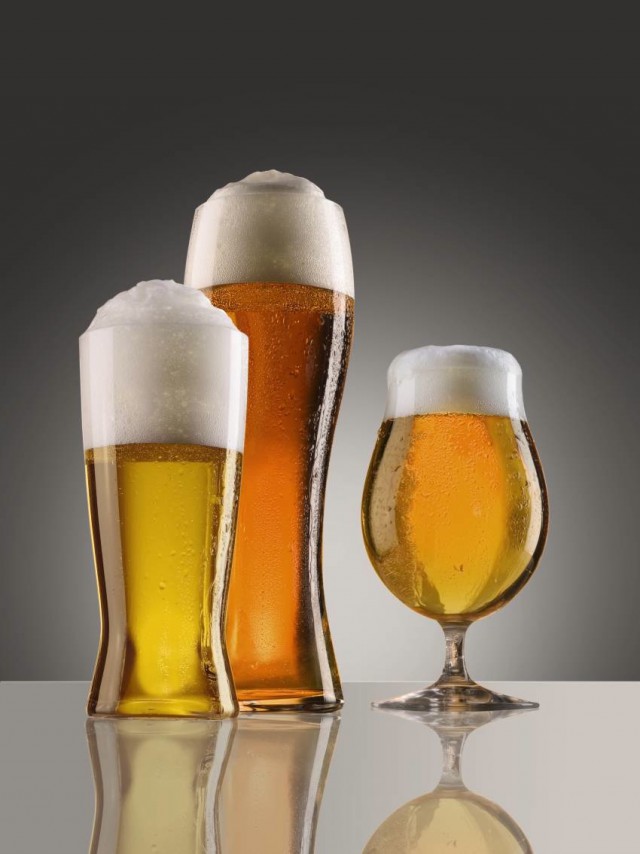
Boulder County’s streets might as well be flowing with beer. Many breweries in the area are expanding their facilities, and brewpubs seem to constantly be adding new ales to their menus.
But could this beer bubble ever burst?
Currently there are more than 1,700 breweries in the United States, more than ever existed in the nation’s history. In 2011 alone, there were almost 700 documented breweries planning to open, says Julia Herz, a craft beer program director with the Brewers Association.
“You’ve got a large portion of existing breweries, 1,700-plus,” Herz says.
“Then on top of that, you’ve got … 700 breweries in planning, which is unprecedented.”
Herz says the future may look bright for small breweries in the U.S., but their respective regional markets will determine their success. In Boulder’s case, the market is thriving, and some breweries are experiencing the fastest periods of growth they have seen to date.
The Mountain Sun family is anticipating the opening of their biggest brewery yet at their Vine Street location in Denver. Paul Nashak, a managing partner of the operation, says the decision to open the new brewery has been in the works for five years and was necessary to meet the demands of consumers.
“The two breweries in Boulder almost didn’t make enough beer for the demand that we had,” Nashak says. “So when we decided to open a third pub, we wanted to find a spot that would lend itself to a larger brewery than what we had so far, so that we could relieve some of the strain of the demand of all three pubs.”
Nashak says the addition of the new brewery will create the identity the other Mountain Sun locations are known for and allow brewers the room for creative experimentation with the beer, something that will be beneficial during a time of rapid growth in the Colorado beer market.
“The trend is still growing; every year that goes by, microbrews are doing better,” he says. “I think Colorado beer is doing better than it’s ever done. All the breweries and distributors are experiencing growth.”
Herz says this ability for consumers to see — and taste — the identities of the breweries in their area is one way to ensure they continue to thrive.
“Any brewery today is going to give you their personal story, and if they’re not sharing that, they’re not going to succeed,” she says. “Every brewery that you tour and taste at, you’re getting a piece of the personality of the principles behind their craft beers.”
Another local brewery undergoing changes to meet growing demands is Avery Brewing. Avery Marketing Director C.V. Howe says the brewery has had to almost double employee numbers over the past six months to keep up.
Boulder County is a brewer’s paradise because of ample mineral water, college-educated demographics and relaxed laws regarding distribution contracts. In other states, Howe says, small brewers are required to enter into contracts with distributors who act as middlemen, and often, their brand can be lost among the other brews on a distributors list.
“Colorado allows for contracts with distributors but doesn’t demand it,” Howe says. “That means that a small brewery [that] doesn’t have any brand recognition in another state would have to sign on with generally a large distribution company who is not going to pay any attention to their brand.”
Meeting the expectations of both consumers and the market has meant that Boulder County breweries are constantly looking for ways to stand out, including aging beer in barrels used for white wine or whiskey, while breweries like Asher Brewing Company take steps to stand out starting with their foundational ingredients by brewing only all-organic ales.
But will this market ever become saturated? Herz says it boils down to whether or not a market is oriented toward local breweries, and in a state where the governor refers to the beer industry as the “Munich of the West,” Colorado, for the foreseeable future, will continue to thrive.
“Colorado is definitely a hotbed and one of the more advanced beer cultures in the U.S.,” Herz says. “You’ve got a lot of positive things that have helped breweries in the state overcome barriers that possibly in other regions have been hard to overcome.”
Despite the back-breaking pace of the industry, some breweries in the area continue to experience an environment that is geared more toward camaraderie rather than competition.
“We have a very open, fluid and communicative relationship [with other breweries] for sure,” Howe says. “We’re good friends with all the folks over at the Mountain Sun chain and all sorts of other breweries in town. They’re doing the same thing that we’re doing, which is educating consumers and turning them on to really, really great products.”
Respond: [email protected]














